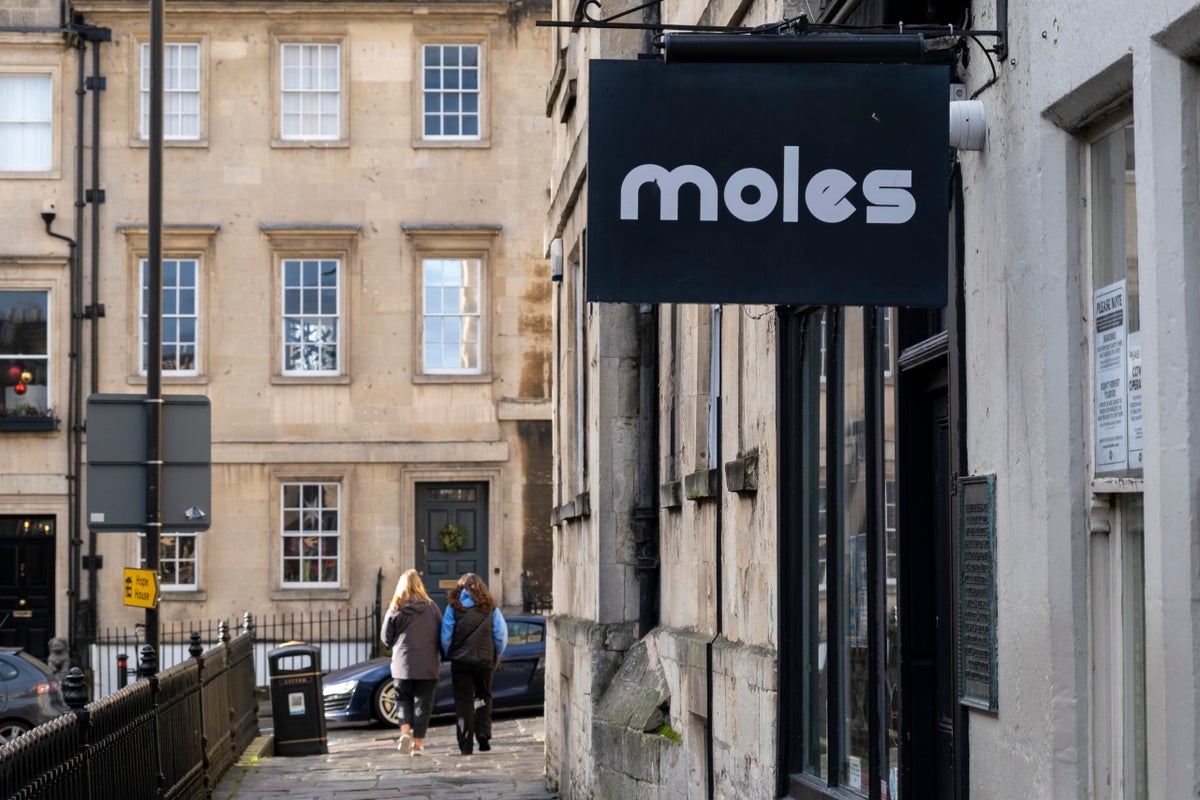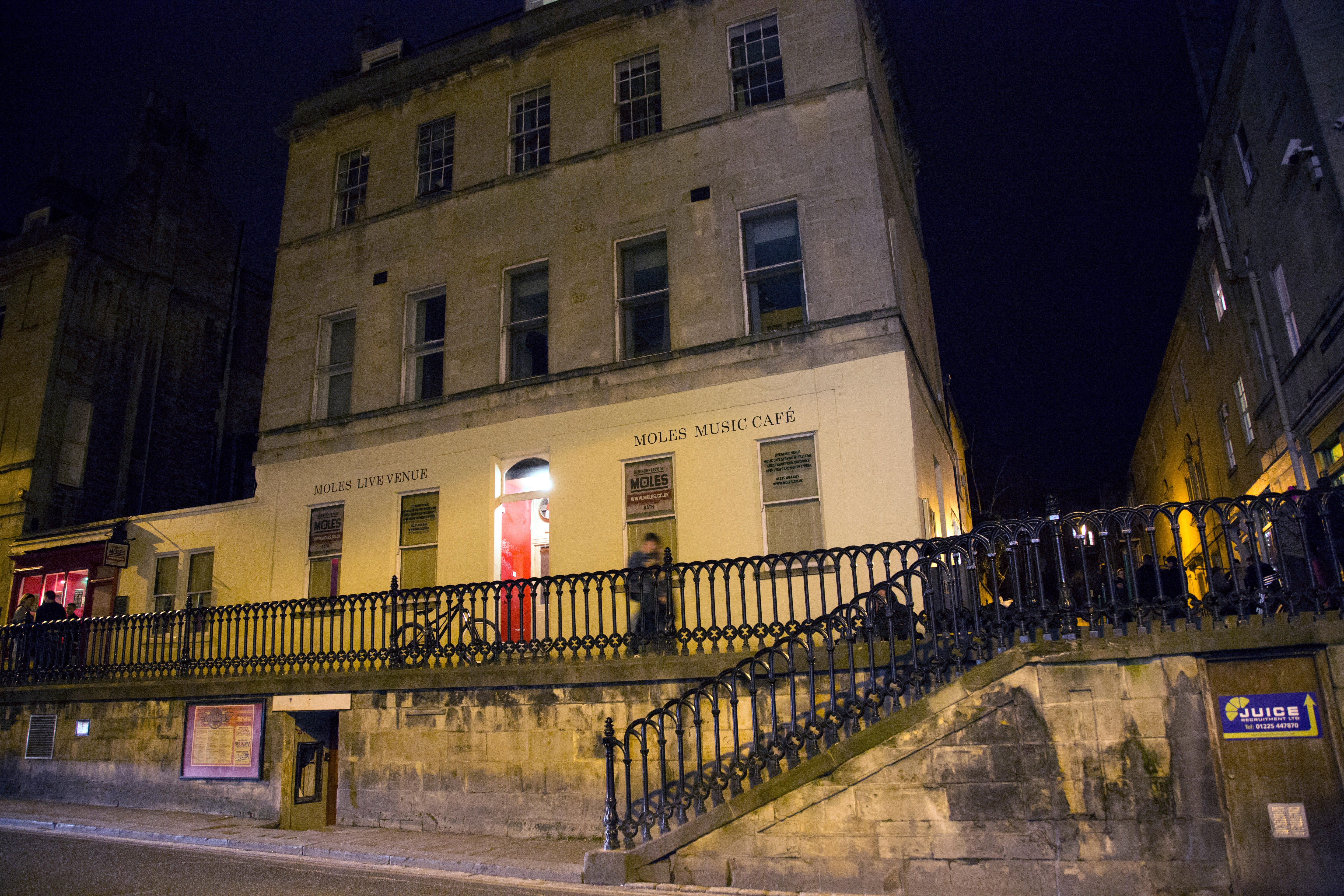
Moles, the historic Bath music venue where Oasis, Ed Sheeran and Radiohead first played, is set to close after 45 years, devastated organisers have announced.
Co-owners said in a statement that it had been a “horrendous” decision that they had been forced to make amid the cost-of-living crisis. All future events have been cancelled.
“Massively increased costs of stock, utilities and rent compounded by our customers also feeling the impact of the crisis has made it impossible to continue,” venue co-owner Tom Maddicott said.
“It’s obviously an incredibly difficult decision to have to take, for our team, the staff, the local community, and the artists that over the years have created such an incredible history of music. But the reality is that live music at grassroots level is no longer economically viable and we will not be the only grassroots music venue forced to close.
“There needs to be a major shake-up of the live industry with the big players supporting the grassroots where it all begins to secure that pipeline of talent,” he continued.
“Football gets it with the Premier League investing millions in the grassroots game each year to bring through new players. The music industry needs to do the same before the entire grassroots sector collapses.”
Moles is one of the best-known grassroots music venues in the UK, and first opened its doors in 1978, after which it became known as a prominent champion of new and emerging talent.
Some of the world’s biggest acts, including festival and stadium-headliners such as Sheeran, Radiohead, The Killers, Oasis and The Smiths, performed at the 200-capacity venue in the early stages of their careers.

The news comes not long after the Music Venue Trust, the industry body that represents the UK’s grassroots venues, issued a dire warning about the tenuous future of live music.
The charitable organisation, which was launched in 2014 to help protect and support the hundreds of venues that play host to Britain’s emerging music talent, warned in September that the sector is in the middle of a “full-blown crisis”.
Grassroots music venues (GMV) frequently serve as a launchpad for emerging and up-and-coming talent, including many of Britain’s biggest stars.
A total 125 grassroots venues have been forced to close in the past 12 months, the MVT said, representing “the loss of 4,000 jobs, 14,250 events, 193,230 performance opportunities, £9m of income for musicians, and £59m in lost direct economic activity”.
“These were treasured places that bond our communities together, foster pride in the places we live, drive creativity and create aspiration,” the letter said.
“For the British music economy, an area of the creative industries in which we are world leaders, this is 15.7 per cent fewer research and development opportunities to support the next wave of British talent.”
The MVT successfully campaigned for an extension of the 75 per cent business relief rate beyond April 2024 in Jeremy Hunt’s autumn statement, but it is evident that this was too late for Moles.
Mark Davyd, CEO and Founder of Music Venue Trust, said: “Today is a very sad day for our sector. Grassroots Music Venues like Moles, one of the best loved and most efficiently run venues in the country for almost 45 years, have done everything they can to keep afloat, investing every penny they can into trying to fulfil their commitment to live music.
“Venues like these all over the country are going out of business, whilst helping nurture the artists that will go on to generate millions for the broader music industry.
“Put bluntly, they have been badly let down by those who profit from their efforts. Unless it gets serious about its responsibilities to encourage, nurture and develop the grassroots live sector the music industry as a whole will face a catastrophic failure of artist development.”







